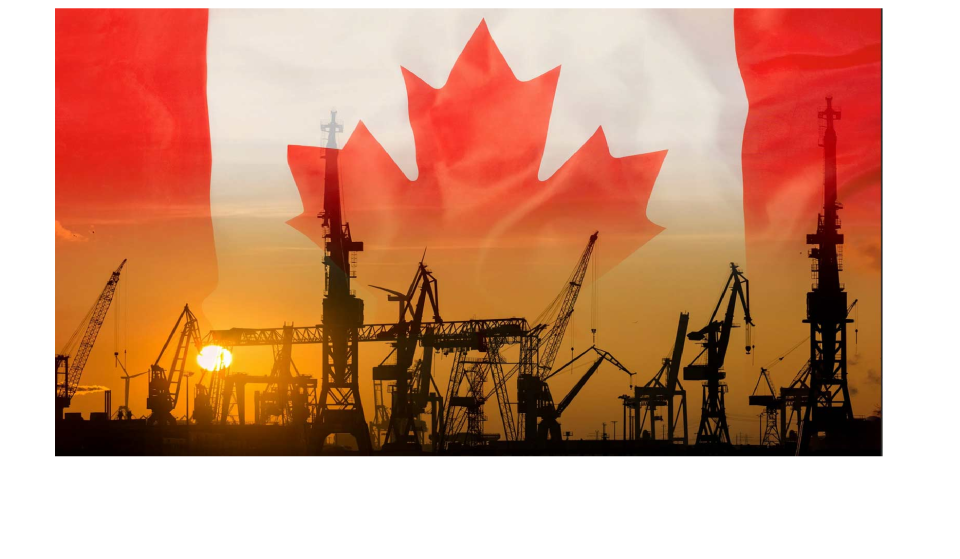- Its failure to push more strongly for LNG has put us in a weaker position, but there is time to recover
Earlier this month, President Donald Trump and Japanese Prime Minister Shigeru Ishiba announced a joint American-Japanese venture for the Alaska LNG Project. Once built, the $44 billion project will ship gas from northern Alaska through an 800-mile pipeline to a liquefaction facility in Nikiski for export.
It is another sign that Canada needs to step up its liquefied natural gas (LNG) industry.
For years, Canada has been indecisive about LNG, while others seized the moment. Now, with global demand for LNG surging and allies like Germany, Poland, and Japan needing stable energy sources, Canada finds itself left behind, and forced to regret regulatory missteps, political foot-dragging, and underestimating LNG’s long-term value.
The warning signs have been there for years. In 2022, as Europe scrambled to replace Russian gas after the invasion of Ukraine, German Chancellor Olaf Scholz personally came to Canada to request LNG exports. Instead of seizing the moment, only to be told there was no “strong business case” for Canadian LNG exports to Europe.
The same story followed with Japanese Prime Minister Fumio Kishida in 2023 and Greek Prime Minister Kyriakos Mitsotakis and Polish President Andrzej Duda in 2024. Each time, Canada’s response was the same, with no commitment, no plan, and no urgency.
Meanwhile, others acted. The U.S. and Qatar ramped up their LNG exports, locking in long-term contracts with European and Asian buyers. Germany, despite its push for renewables, invested in floating LNG terminals, recognizing that natural gas would be essential for energy security. Canada, despite having some of the world’s largest natural gas reserves, failed to position itself as a global supplier.
The federal government’s Bill C-69, the so-called “no more pipelines” law, created an onerous and unpredictable regulatory process for major energy projects. The provincial CleanBC plan made it clear that investment in the sector would face endless hurdles.
The results have been severe. Since 2015, Canada has seen $670 billion in cancelled resource projects, including multiple LNG terminals on the Atlantic and Pacific coasts. The Energy East pipeline, which could have supplied LNG facilities in New Brunswick and enabled exports to Europe, was cancelled due to regulatory delays. The proposed expansion of Repsol’s LNG terminal in Saint John faced the same fate. Investors, spooked by uncertainty and government hostility, took their money elsewhere.
While Canada dithered, the world moved. As Stewart Muir, CEO of Resource Works, has written, LNG is not just a “bridge fuel”, it’s a destination fuel for much of the world. Despite heavy investment in renewables, countries like China are building coal-fired power plants because they lack secure, low-emissions alternatives.
If Canada had been exporting LNG between 2020 and 2022, it could have displaced an entire year’s worth of Canada’s domestic emissions in coal-dependent countries. Instead, Canada chose climate protectionism, prioritizing domestic emissions cuts over global impact.
The irony is that Canada’s hesitation to embrace LNG has hurt the climate more than it has helped. As coal consumption rises in Asia and Europe, emissions continue to soar, emissions that Canadian LNG could have displaced. A National Bank of Canada report found that transitioning India from coal to natural gas could cut four times more emissions than Canada’s total annual output, a massive missed opportunity.
Beyond environmental costs, the economic consequences are enormous. LNG projects in B.C. have been job engines, revitalizing communities once dependent on fishing, mining, and forestry. The Atlantic provinces, struggling economically, could have experienced the same boom had LNG infrastructure been developed there. Instead, they’ve been left behind.
There’s still time for Canada to change course, but it will require a complete reversal of policy. The federal government must:
- Reform permitting and regulatory processes to make LNG projects viable and competitive.
- Acknowledge LNG’s role in global emissions reduction and align climate policies with global realities.
- Develop Atlantic LNG infrastructure to serve European markets, capitalizing on growing demand.
As Enbridge CEO Greg Ebel said at LNG2023, Canada’s allies have been “knocking on our door…to which we’ve said…no.” It’s time to stop saying no, to LNG, to economic growth, and to a cleaner energy future. If we don’t act now, we’ll be left behind forever.
Source: EnergyNow.Ca

